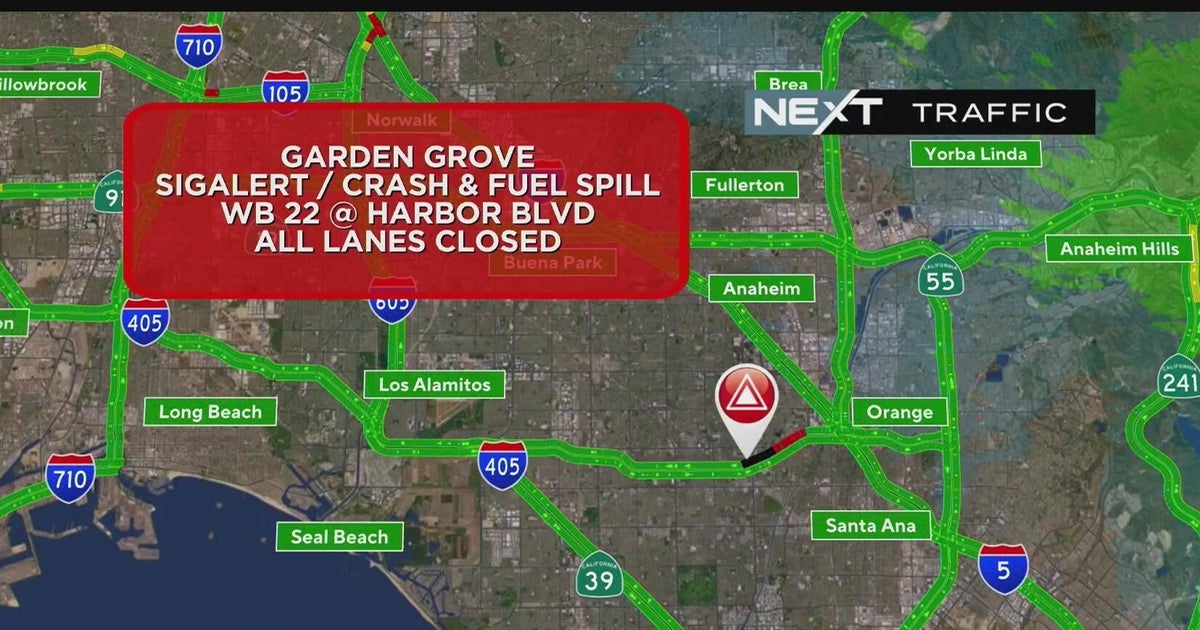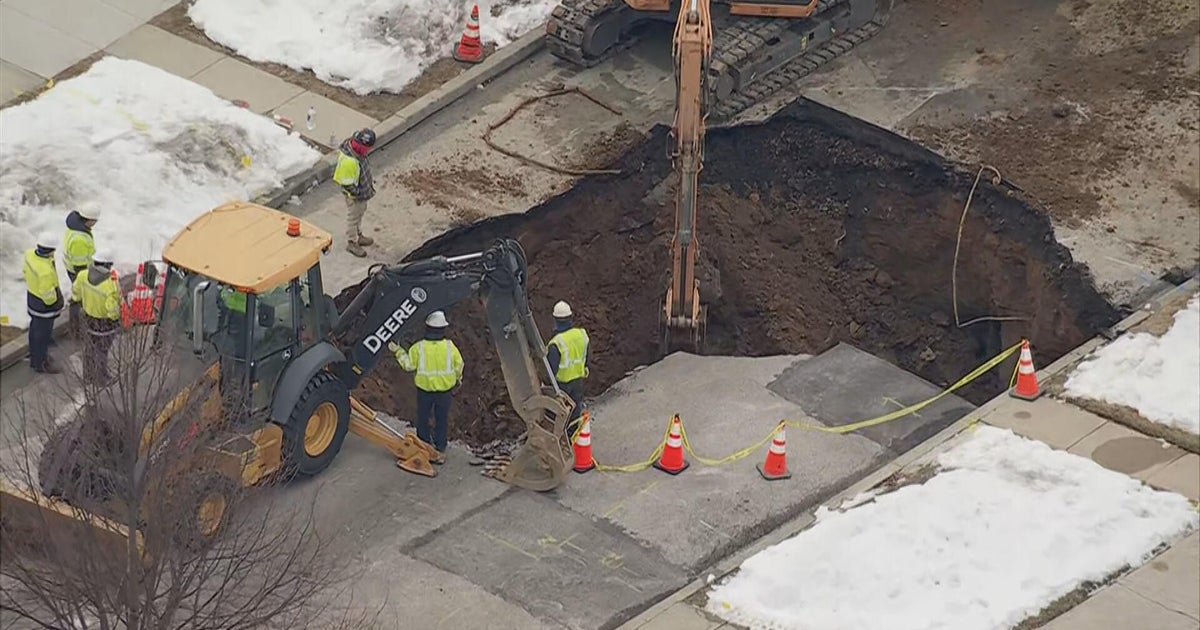Portage Mayor, Advocates Call For Stricter Rules And Testing After Fish-Killing ArcelorMittal Chemical Spill
PORTAGE, Ind. (CBS) -- Who could forget the pictures – thousands of fish left dead in the Little Calumet River in Northwest Indiana last week after a chemical spill at the nearby ArcelorMittal steel plant?
Now, as CBS 2's Tim McNicholas reported Wednesday, there is an urgent call for stricter rules and more testing.
Meanwhile, the cyanide spill was still affecting people days later. Swimming as of Wednesday still was not allowed at the Portage Lakefront and Riverwalk beach, though the most recent test results for the area show signs of improvements and no more cyanide.
Portage Mayor John Cannon said he expects the beach to be back open for swimming this weekend. Seven other Indiana Dunes beaches have remained open without restrictions.
Still, Cannon wants to prevent such a spill from ever happening again. Even with the 3,000 dead fish cleaned up, Cannon's memories and frustration with the situation are here to stay.
"It's tough to be patient in these situations, because there could be harm to our waterways; to our wildlife," Cannon said.
ArcelorMittal has apologized and accepted responsibility for the spill, caused by a failure to their blast furnace water recirculation system. The State of Indiana said that failure happened all the way back on Sunday, Aug. 11, but the company did not tell the state about the high cyanide levels until Thursday, Aug. 15.
The state then told the City of Portage.
"That's the frustrating part, that we don't have a way to monitor instantly, and I don't know if the technology is out there to do it, but my team is suggesting that we look into that," Cannon said.
ArcelorMittal on Wednesday disputed the claim that it knew about the spill since Sunday, Aug. 11. The company said its notice to the Indiana Department of Environmental Management on Thursday, Aug. 15, only said it had exceeded the permitted levels of cyanide and believed that the reason would be "a loss of power and operation" in its blast furnace recirculation system.
ArcelorMittal said it was not until Thursday, Aug. 15 that the company even received conclusive sampling results about the spill.
ArcelorMittal's permit allows the company to release a limited amount of cyanide into the water per day.
At one of their outfalls, the limit is 21 pounds per day. But their tests showed 188 pounds on Aug. 13.
The permit also requires cyanide testing twice per month at one outfall and once a week at another.
"We need monitoring that adequately accounts for what levels are all the time," said Victoria Wittig of the nonprofit Save the Dunes.
Wittig said daily testing should be required, and the mayor agrees.
"It comes to communication, transparency, and accountability," Wittig said. "We need ArcelorMittal to be out in front, reporting to the public that they could be in harm's way – even if it's not required by their permits."
The mayor also said two other incidents yesterday caused concern for area waterways.
According to the state, ArcelorMittal and another company, U.S. Steel, both reported oil sheens or water discoloration at the outfalls of their facilities.
Cannon said the U.S. Steel incident was a minor petroleum spill on the Burns Waterway and it was cleaned up quickly.
IDEM said the ArcelorMittal sheen issue is continuing on and off and the company has not told the state the cause. An IDEM spokesperson said the state has told ArcelorMittal to monitor and correct the situation. The mayor said that incident was at the Port of Indiana.
In an email, an ArcelorMittal spokesperson said the company had responded to the reported sheen and notified authorities.
In its Wednesday statement, ArcelorMittal said process failures in its manufacturing do not always result in spills that exceed the permitted amounts of chemicals. The company also emphasized that it does not just dump untreated chemicals into the Little Calumet River – the contaminated water went through a water recirculation system and a secondary wastewater treatment plant, and then to a settling pond where it was released in small increments into the river, the company said.
The fact that the wastewater goes through this process – combined with a one- to four-day delay in receiving analytic information – might be to blame for the perceived gap in time between the blast furnace incident and the time that authorities were notified of the spill, ArcelorMittal said.
CBS 2 has asked ArcelorMittal repeatedly for an interview to ask how they plan to improve their operations, and prevent a repeat of the cyanide and ammonia spill. The company has refused or ignored CBS 2's request every time.







